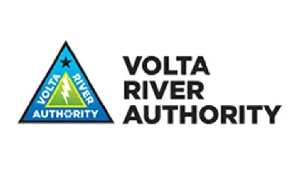Opinions of Monday, 5 February 2024
Columnist: Mohammed Saani Iddrisu
The unfair hegemonic powers Volta River Authority (VRA) and its subsidiaries (ECG, NEDco) enjoy and the integrity crisis as utility providers
Volta River Authority exists to power economies and raise the living standards of the people of Ghana and West Africa. It supplies electricity and related services in a reliable, safe, and environmentally friendly manner to add economic, financial, and social value to customers and meet stakeholders’ expectations.
VRA is the major power generation company, solely owned by the government and
established in 1961 by an ACT of Parliament. It forms the first arm of the recently restructured electricity generation, transmission, and distribution chain in Ghana.
The cardinal point for effective service delivery hinges on collaborative efforts between the service provider and the consuming public who have common and collaborative interests to ensure a win-win situation. Electricity is a major developmental good that supports the economic social and cultural well-being of the people of Ghana and beyond.
The Public Utilities and Regulatory Commission was established under Act 538, 1997 to regulate and oversee the provision of utility services by public utilities to consumers and to provide for related matters. This regulatory body has the duty and mandate to ensure fair and well-balanced power supplies to consumers by undertaking tariff setting, receiving and addressing complaints of consumers, utility providers carry their work within the regulatory framework.
However, considering the enormity of public dissatisfaction, and frustrations in accessing power, one may be tempted to say that this body appears to be sitting on the fence. It would be in the interest of the regulator and utility service providers to manage this crisis before it gets out of hand.
There has not been an adequate relationship with the consuming public on tariff setting. The communities are not sufficiently informed or educated on the various consumption levels such as the cost of power and consumption relationship for various units of power and to appreciate and understand the cost and value of energy generation and its supply to them.
The service providers ECG and NEDco also exhibit stand-alone attitudes as if they are masters of their own. They make decisions arbitrarily without recourse to broader consultations. The consuming public often complains of poor service delivery. The only time one sees them interact with the communities is when there is a new arrangement such as new meter distribution with resistance from the customers, power theft, and revenue mobilization exercises. They quickly move to mosques, churches, traditional authorities, radio stations, and opinion leaders for a one-off sensitization meeting and execution of penalties.
Interestingly, the utility service providers have Public Relations Officers who are well paid and are supposed to regularly interact with customers to ensure good relationships, do not do much, and mostly reduce their work to as and when there is an issue.
It takes a potential customer for a new service, a long time to access service or power. Customers who complain of faulty meters, high cost of billing, and credit are not properly attended to. The most annoying aspect of it is that staff who are supposed to see customers as partners exhibit repulsive attitudes.
Lack of good customer relationships does not make the energy consumers appreciate the value and cost of generating the power. This among others creates issues of suspicion, illegal connections, non-payment of bills, and theft of power facilities which lead to huge losses and high operational costs.
The public perception of the service provider is nothing to write home about, there are issues such as mistrust and lack of confidence in the Utility. One may not lose sight of the fact that some recalcitrant consumers use power illegally.
The use of security forces in a bid to deal with recalcitrant consumers is a step in the very wrong direction which further endangers customer relationships. Ghana is a civilized economy and there are laws governing public and private practice. This approach gives an inkling of the fact that the technical and managerial competence of these service providers is questionable.
The recent disaster or calamity that has hit hard on the people living around the Akosombo dam in the Volta Region and other districts has never been witnessed in any part of the country which resulted in loss of properties and general livelihood. This catastrophic disaster could have been avoided if the responsible engineers had done a fore-see-ability analysis of the dam.
It is increasingly important for public service providers to create a good image and have the trust and confidence of the public. The following are a few suggestions for effective and efficient service delivery and improving customer relationships.
Increase the capacity of the personnel to exhibit technical and managerial
competence and customer relationship in the field of work.
The complaints received should be documented and addressed expeditiously.
Ensure regular community meetings to improve effective and anchored relationship
between the Utility and the general public.
Design and implement regular in-service training for the staff.
Effective and resilient interconnectivity of roles of the various departments of the organization.
Improve upon the work of the Public Relations Department to live up to
expectations
Officers who are assigned roles and responsibilities are checked regularly and held accountable for their stewardship.
Undertake effective legal processes to deal with recalcitrant consumers
Institute reward and stiff punishment systems for officers who perform better and those found negligent in their duties respectively.
Have regular meetings to identify the strengths and weaknesses of the organization.
Strengthen the Monitoring and Evaluation department.













